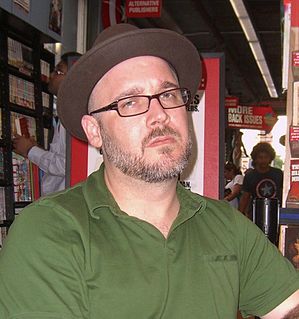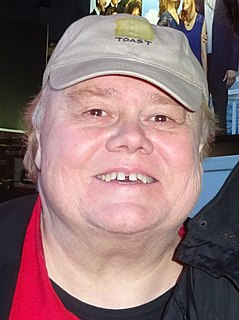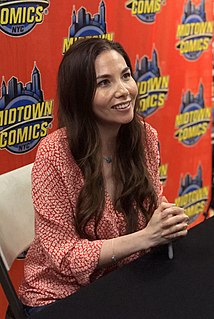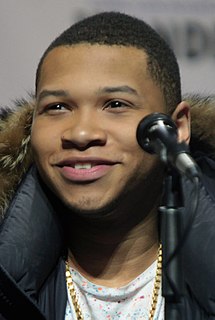A Quote by Ed Brubaker
With comics, you can only really learn what you're doing wrong or what works best when you see your work published. I've been publishing comics since my 20s, and still, when I flip through any of my new comics, I still only see the things that I wish I'd done better. But that's how you learn, by seeing it.
Related Quotes
Self-publishing in comics is core to the whole artform. There is no scarlet letter in comics as there still is, to some degree, in prose. As no publisher for a long time would publish serious work in comics, the only way a lot of it came out was because of self-publishing. Many of the greatest works of the medium are self-published.
There are a lot of good comics, no doubt, but as far as the quality of the comics goes, I think what you have is a bunch of situational comics - there are black comics that work only black crowds, gay comics that do only gay crowds, and southern comics that only work down South, and so on with Asian, Latino, Indian, midgets, etc. The previous generation's comics were better because they had to make everybody laugh.
I was a voracious reader and I could never understand why comics were of any less merit or importance than any other way of writing. I think the thing that keeps me with comics is there's still so much to be done. There's still this huge unplowed field, this huge unexplored wilderness, and as long as I can keep doing new things and coming up with new things, I will.
I never feel there's anything I can't do with comics. There are certain things in comics that you can't do in any other medium: for instance, in Mister Wonderful, Marshall's narration overlaps the events as they're going on. That would be difficult in film; you could blot speech out with a voiceover, but it wouldn't have the same effect. That's always of interest, to see what new things you can do in comics form.
I've seen a tremendous shift especially in indie comics. I see all these young women who are out there creating. They're making these great web comics. Their graphic novels are getting published. They're making all this wonderful art. They're powerful. There's this vital energy about it that's really, really beautiful that years ago I knew existed but I didn't see so clearly.
In early comics, you see the amazing awkwardness and bizarre reasoning in the storyline, and it's because comics hadn't really been invented yet. There was no format for them to follow. They were just making it up. So I try to incorporate that kind of awkwardness in my comics quite frequently, which is odd. In some ways, I can't be as awkward as I'd like. But I do think that's one way in which my comics are unusual, because I will try to make the artwork look bad, occasionally.
I had done a couple TV pilots, and a friend of mine wanted to leave comics and come work in Hollywood, and I said, "Well, you've got to understand that when you sell a TV pilot, imagine if you turned in the best issue of Batman ever, and DC was like, 'Well we love this, but we can't publish it because we have to publish this other thing by this other person." The odds are really long on getting anything made, so if you come from comics and you're still making a living in comics, that really helps because you're not desperate for someone's permission to write for a living.





































